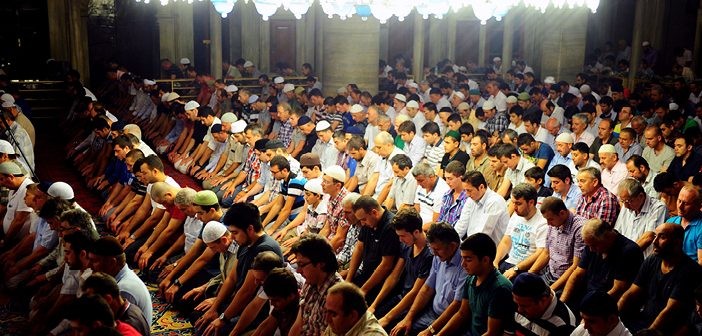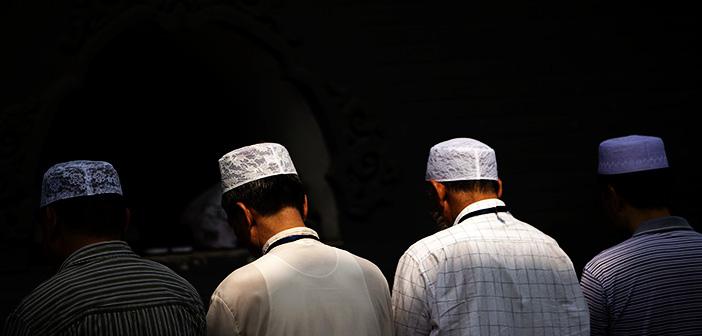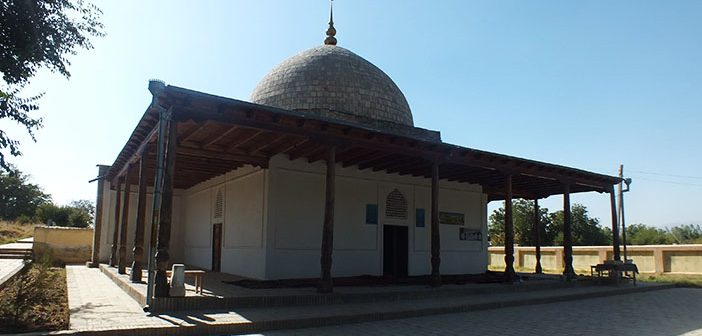
The Journey of the Spirit (Sayr-u Suluq)
What is jourmey of the spirit? What does jourmey of the spirit mean in islam? What is the sayru suluq? What does sayru suluq mean?
The Arabs of the jahiliyyah (ignorant) period were a community of people who had such hardened hearts and who had lost their humanity, so much so that they were able to bury their female baby daughters alive. They were a people devoid of compassion and mercy who believed that right belonged to the strong and that the weak should be deprived of all their rights. Through the spiritual training of the Messenger of Allah (peace and blessings be upon him) this community became the most select and elite community in the world and founded a civilisation never before witnessed in history. By keeping fresh within their hearts the love they felt for the Messenger of Allah (peace and blessings be upon him), they were able to attain a spiritual vigour and vitality, and as a result their worship was filled with awe and reverence for Allah (khushu).
Words as precious as diamonds fell from the lips of those Blessed Companions (may Allah be pleased with them) who followed in the enlightened way of the Prophet (peace and blessings be upon him). These words were a means of refreshment for those who heard them, like the harmonious flow of a river. These believers, with the good character they obtained from the character of Islam, were like newly blossoming flowers which attracted the hearts and tickled the spirits with their beauty, purity and pleasant fragrance.
This great revolution that the prophet Muhammad (peace and blessings be upon him) brought about in the spirits of the Companions (may Allah be pleased with them) and in the social conscience of mankind requires that we carefully analyse his method of guidance.
The method used by the people of tasawwuf was to take this prophetic method and apply it to their own time and background as required. The prophet Muhammad (peace and blessings be upon him) trained his Companions by conversing with them (suhbah), transferring the knowledge and wisdom of his heart at every opportunity. With his personal example he allowed the poor ahl al-suffa (the people of the bench) in particular, to reach an unimaginable state of perfection through zuhd and taqwa.
The distinguishing features of the Companions were eating little, sleeping little, speaking little, spending their time reciting the Qur’an, remembering Allah, supererogatory worship, and contemplation. A lifestyle of excessive spending, luxury and waste was unknown by the community of Companions. They were content with what was enough and gave away anything in excess of their need. They worked in order not to be dependent on others and rushed to serve those who were stricken and afflicted which gave the believing hearts much pleasure and joy.
As a result of the spiritual training that the Companions obtained they did not waver for a second even after the prophet (peace and blessings be upon him) migrated to the next world. They spread throughout the world as soldiers of knowledge, wisdom, propagation and struggle in the way of Allah. They took the flames of their heart that were ignited in Madina to Samarkand, China, Iran, Anatolia, Istanbul, Africa and the shores of the Atlantic Ocean, with the prosperity they received from the prophet. Their only concern was to seek the pleasure of Allah and be close to the Messenger of Allah (peace and blessings be upon him) in the next world, the real world.
Abdurrahman ibn Awf (may Allah be pleased with him)narrates:
“Islam brought certain difficult commands which were unpleasant to the nafs. We found the best of the best to be in these difficult commands that were unpleasant to the nafs. For instance we left Mecca and migrated to Madina with the Messenger of Allah (peace and blessings be upon him). It was because of this migration that was difficult upon the nafs that we were granted superiority and victory and the road to success was opened for us. Allah Most High says in the Qur’an:
‘Just so, your Lord caused you to go forth from your home for a true cause (which He had already determined would be realized); and yet a group from among the believers were averse (to the direction that events took).
‘They argued with you concerning the truth (of the matter which God had already decided would be realized) even after it (the direction that developments would take) had been manifest, as if they were being driven toward death with their eyes wide open’ (Anfal 8:5-6).
As is described in this verse we set out for Badr accompanied by the Messenger of Allah (peace and blessings be upon him). Here once more Allah, Most High, gave us superiority and victory.
And so it was that we always encountered the best of outcomes, on account of these commands that our nafs found difficult” (Haysami, VII, 26-27).
As so these Blessed Companions (may Allah be pleased with them) went against the desires of their nafs and did what it did not want them to do and were personally trained by the teachings of the prophet Muhammad (peace and blessings be upon him) through riyazat (abstention) and mujahadah (struggle).
The last expedition of the prophet Muhammad (peace and blessings be upon him) to Tabuk was also filled with difficulty and hardship. The Muslim army had travelled for thousands of kilometres and then returned. When they arrived back in Madina they had practically changed form, their skin was taut over their bones, and their hair and beards were dishevelled. It was while they were in this state that the prophet Muhammad (peace and blessings be upon him) said to them:
“You have come back in the best way. Now you have come back from the lesser jihad to the greater jihad”.
The Companions asked:
“What is the greater jihad?”
The prophet replied:
“The jihad (struggle) against one’s desires” (Bayhaqi, al-Zuhdu al-Kabir, p 198/374; Suyuti, Jami, II, 73/6107).
Another time the prophet (peace and blessings be upon him) praised the righteous believers who struggled against their caprices and whims as follows:
“The true mujahid is the one who struggles against their nafs” (Tirmidhi, Fadail al-Jihad, 2/1621; Ahmad, VI, 20).
The following words of Abdullah ibn Mas’ud (may Allah be pleased with him) summarise nicely the station of the heart that the Companions reached under the spiritual training of the Messenger of Allah (peace and blessings be upon him) and as a result of the struggle against their nafs:
“We reached such a state that we were able to hear the glorifications (tasbihat) of the food that we ate” (Bukhari, Manakib, 25).
Thus, tasawwuf in the hands of Sufi teachers (murabbi), who are the real heirs of the Messenger of Allah (peace and blessings be upon him), and through the prophetic methods of training becomes like a spiritual school in which the nafs is refined and the heart is purified. Enrolment in this spiritual school and the steps taken in the process of becoming a perfect human being is called ‘sayr-i suluq’.
As a result of this sayr-i suluq everything that distances a person from Allah is renounced from the heart. This is such an arduous and demanding task that it is like panning tonnes of dirt in order to obtain one gram of gold.
The aim of tasawwuf, having gone through this process of spiritual refinement, is to allow the human being to live in a constant state of being together with Allah. It is to find Allah in one’s heart, to be united with Him in one’s heart and to reach the peak of happiness. In the eyes of those who reach this peak anything other than Allah (masiwa) falls short to its true worth. In the face of the spiritual joy that comes from being together with Allah, all other fleeting pleasures lose their value.
Ibrahim ibn Adham (may Allah have mercy on him), who rejected his worldly kingdom for the sake of the ocean of divine love that he later found, said:
“If the passion and rapture found in the love we felt for Allah was something material, kings would have sacrificed their entire wealth and kingdom in order to take it from us”.
It is without a doubt then that the way to reach this peak of happiness is through perfecting the spirit; that is through sayr-i suluq.
Source: Osman Nuri Topbaş,The Golden Chain of Transmission Masters of the Naqshinandi Way, Erkam Publications
Prayer (Dua)
EMBOYDYING GOOD MORALS














